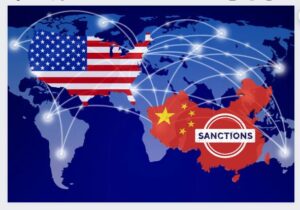Fighting China IP Infringement: The Power of Cease-and-Desist Letters
With IP infringement in China rising amid geopolitical tensions and China’s sinking economy, many companies are scrambling to protect their intellectual property. But legal action can be slow and expensive. Well-crafted cease-and-desist letters can often provide a faster, more affordable recourse.
My law firm’s international IP attorneys have sent countless cease-and-desist letters to Chinese entities, with surprisingly good effect.
When facing IP infringement in China, two primary routes exist: pursuing administrative remedies or court litigation. Both these paths entail substantial legal fees and slow outcomes. In contrast, cease-and-desist letters, sometimes referred to as “lawyer’s letters,” often generate faster and more cost-effective results.
A Closer Look at Cease-and-Desist Letters
In navigating China’s IP infringement landscape, it is important to understand the cultural and legal contexts as the effectiveness of cease-and-desist letters can be significantly impacted by these factors. For instance, the Chinese business culture values relationships and face-saving, which can sometimes be leveraged to reach an amicable resolution to IP disputes. Furthermore, having a strong legal foundation based on Chinese law, not just international law, is critical for the cease-and-desist letter to be taken seriously. Tailoring your cease-and-desist letter to conform to China’s legal framework and cultural norms will enhance their effectiveness, expedite resolution, and save you money.
Effective cease-and-desist letters usually contain the following elements:
1. Clearly outline the infringed IP rights, supported by legal documentation.
2. Specify the infringing actions, accompanied by evidence.
3. Demand a halt to the infringing actions and sometimes, the destruction of the infringing goods.
4. Offer a window for the recipient to respond, usually by a specific date.
5. Depending on the client’s wishes and the nature of the Chinese company engaging in the IP infringement, we offer the option of entering into an IP licensing agreement with our client and paying licensing fees.
Without exception, our China lawyers always write these cease-and-desist letters in Chinese, as this is imperative for fostering comprehension and urgency on the recipient’s end.
Examining Real-World Scenarios
Below are archetypical examples illustrating our China IP lawyers’ experiences with cease-and-desist letters in China.
Example 1. A well-known European fashion brand was facing rampant counterfeit sales from a Chinese e-commerce platform. Via an online form they’d asked the platform to take down the infringing items but had been ignored. We wrote a Chinese language cease-and-desist letter that included the Chinese laws violated and provided documentary evidence of the specific violations, and we demanded the platform remove the counterfeit listings or face litigation. The items were gone within the week.
Example 2. A US-based tech company sent an English language cease-and-desist letter from their American IP lawyer who had no China IP experience whatsoever. The letter did not work and so the tech company retained us to “do something about the infringement.” We quickly determined that the company doing the infringing was not the sort of company that would listen to threats and so we suggested that our client take various business-side actions to reduce the harm stemming from the infringement. The company followed our suggestions, and its China sales actually were soon greater than before the infringement started. This client wisely chose not to pursue legal action as that likely would not have given it a good return on its costs.
Example 3. Upon receiving cease-and-desist letters from our law firm, three reputable Chinese companies entered into IP licensing agreements with our client that remain active to this day. The fees our client receives from these three agreements are not as much as what they are getting in countries with better and fairer legal systems, but in their own words, “it’s a lot more than we ever expected to get.”
Example 4. A Spanish company came to us after its lawyers sent out cease-and-desist letter to a Chinese company and heard nothing back. Our lawyers researched the Chinese company and determined that the cease-and-desist letter had gone to a completely wrong company. We wrote the correct company and they immediately stopped infringing.
Key Takeaways
a. Use Tailored Cease-and-Desist Letters
Due to a deadly combination of geopolitics and a plunging economy, Chinese companies are more frequently infringing on foreign IP rights. Given China’s unique cultural and legal context, it’s vital to craft your IP protection strategies accordingly. Your cease-and-desist letters should demonstrate an understanding of Chinese business norms and regulations to achieve the best outcome.
b. When to Use Cease-and-Desist Letters
Cease-and-desist letters can be a cost-effective and swift initial step in combating IP infringement in China. Their effectiveness, however, often hinges on the infringer’s profile and the precise nature of the infringement. It’s also vital that your strategies are in accord with Chinese legal and cultural frameworks. For instance, leveraging the value placed on business relationships in China can sometimes provide an alternative pathway to resolving disputes amicably, potentially through negotiated settlements or licensing agreements.
c. Language and Legal Adherence
The significance of drafting cease-and-desist letters in Chinese cannot be overstated. Aligning your cease-and-desist letters with China’s legal and cultural framework is crucial for them to be taken seriously and to work.
d. Preliminary Due Diligence
Conducting due diligence to understand the infringing entity’s profile can impact the strategy used to address the infringement or even whether a cease-and-desist letter is a worthwhile step. Conducting due diligence on the infringing Chinese company before sending any cease-and-desist letter is absolutely crucial.
These takeaways underline the multi-faceted approach necessary for tackling IP infringement in China.
What are you seeing out there?

























